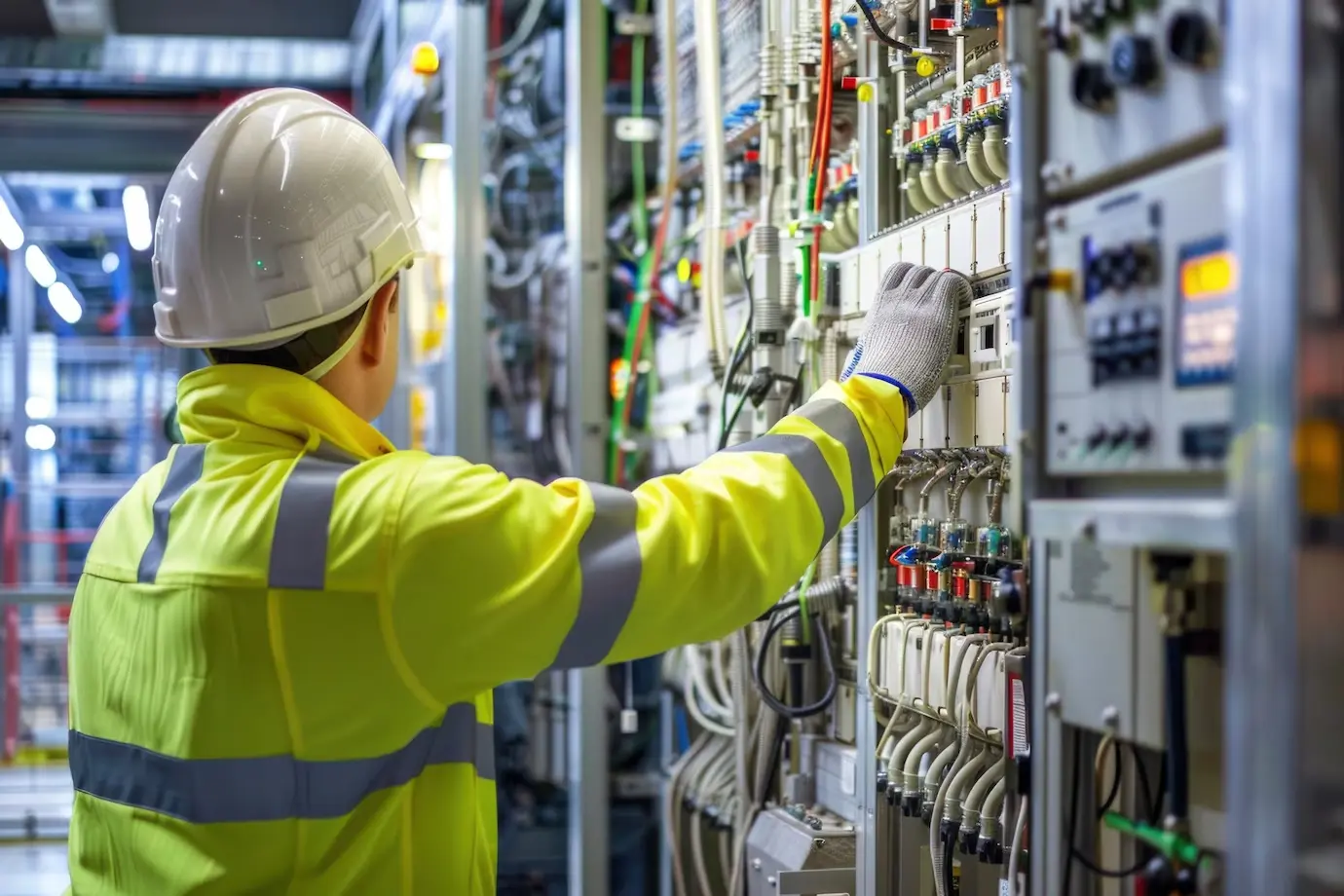Power supply solutions guarantee operational continuity and are at the core of automation system reliability. As B2B sectors progress toward increased automation, the requirements for rugged, high-performance, and efficiency-driven power systems are growing stronger than ever. For engineers, procurement experts, and systems integrators, selecting the correct industrial power supply is a tactical choice – one that can influence safety, productivity, and significant long-term expenditures.
This article focuses on the most important features that must be considered when making a purchasing decision. If you’re upgrading your existing systems or if you’re looking for some new parts, knowing these core characteristics will assist you in selecting the most appropriate from a reputable supplier of industrial automation products.
Power Supplies in Industrial Systems: What You Need To Know
The supplies are not just considered passive components; they energize equipment such as tools, sensors, controllers, and even communication systems. In any industrial environment, a single malfunction in the power supply and you can bring down an entire production line. This is the reason why manufacturers of industrial power supply together with system integrators focus on providing highly reliable and modular power systems for automation tailored to specific needs.
When looking at power supply manufacturers, it’s imperative to keep in mind the entire system framework and focus on how the power elements will interface with your level of automation.
Ruggedness and Reliable Design for Harsh conditions
The working conditions of an industry can be brutal. Humidity, extreme temperature, dust, electrical noise, and vibration are some factors that pose a challenge to power supplies. In relation to the other options of power supplies offered, their durability in all conditions should be assured.
What to look for:
- IP ratings : Every unit should be protected enough from harmful ingress of dust and moisture ensuring protection in wet or dirty environments.
- Temperature Range: These should not have subzero freezers but inbuilt high-heat processing lines providing non-stop fire tolerance.
Durable power automation products suppliers will incorporate these aspects into the design of power supplies so as to enhance the resilience of devices making such products serve factories to avert unplanned breakdowns and elevation in maintenance outages.
Modification Assortment alongside Constant Stabilization
Enhanced voltage steadiness is one of the primary requirements in several industries. Continuous and clean power devoid of fluctuations or surges that will damage sensitive electronic components should be supplied.
Key Features:
- Versatile Input Voltage Range: Handles fluctuations from the mains or generator systems.
- Stable Output: Ensures equipment safety from damage due to voltage dips or surges.
- Multiple Outputs: Provides a single unit capable of supplying 5V, 12V, and 24V at the same time for systems with different voltage needs.
This contour of versatility is extremely useful in systems involving multiple subsystems or international power standards. Certified industrial power supply manufacturers build their systems with strong regulators, feedback control, and several options to switch on or off in order to keep the output constant.
Effective Energy Management and Heat Production
The increase in the cost of energy coupled with the need for sustainable development puts the focus squarely on powering resources – further emphasizing efficiency. Today’s switching mode power supplies (SMPS) are equipped to maximize the energy spent and minimize energy wastage at the same time.
Consider These Specifications:
- For the Best Results: 85% or more under normal load is the gold standard.
- PFC: Power factor correction allows better use of power while minimizing reactive power to be drawn.
- Heat Dissipation: Low dissipation means less extra cooling needed, saving space and cost.
More reliable power supplies are eco-friendly and cost-saving because they avert overheating components, which results in lower energy costs and longer component lifespan. For this reason, many industrial automation products suppliers emphasize implementing SMPS solutions.
Integrated Protection Mechanisms for System Safety Power supplies, in addition to supplying voltage, must also defend systems from numerous conceivable dangers. To avert disastrous automation equipment failure, protective features are paramount.
Standard Protections Include:
- Exceptions on Overvoltage Protection are applied, OVP
- Overcurrent Protection, OCP
- Short Circuit Protection SCP
- Thermal Shutdown
Such features facilitate fracture prevention in case of fault or system abnormality, which is critical for unmanned or 24/7 operations.
For critical industry needs, these features should be reliably tested to guarantee the minimum protective requirements have been met and implemented properly. Qualified suppliers of automation industry automation products bear this responsibility.
Modularity and Scalability for Future Expansion
As businesses become automated, their power needs become dynamic, which describes why industrial systems are rarely fixed. Power Supply Units that are modular and scalable can be selected and easily integrated to upgrade or expand the entire power system.
Advantages of Modularity:
- Less Difficulty During Maintenance: Change only the damaged section rather than the whole component.
- More Options for System Design: Add or subtract modules to fulfill particular current or voltage specifications.
- Greater Accessibility: Works with existing DIN-rail systems and cases.
Incorporated systems with growth capabilities yield the highest ROI over time. A power supply industrial manufacturer and other design associates are now adopting modular designs as industry standard.
Conclusion
Aside from being accessories, power supplies are an integral part of effective and dependable industrial automation. As systems progress, the demand for sophisticated, resilient and scalable power solutions increase. B2B buyers can enhance their operations by focusing on the right features: protection, durability, efficiency, flexibility in voltage, modularity, and more.
To navigate this complex landscape, partnership with a qualified supplier of industrial automation products is crucial. They not only provide components, but solutions tailored to your organizational requirements, from design consultation to post-installation support.
Putting the right features at the forefront when dealing with legacy systems or planning new projects come with ease in performance, safety, and scalability across the entire industrial power supply infrastructure.
Also Read-Enhancing Construction Site Productivity Through Wearable Tech
